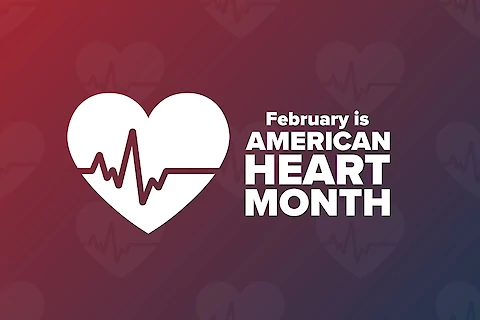
February is American Heart Month: Tips to Help Prevent Heart Disease
Heart disease is one of the most widespread and difficult health challenges in the world. In 2020, heart disease was responsible for more deaths in the United States, than Cancer, Covid-19, Diabetes, and more. According to the World Health Organization, an estimated 17.9 million people (about the population of New York!) died from cardiovascular diseases in 2019, representing 32% of all global deaths. With so many people affected, it is vital that we raise awareness of the importance of heart health.
Know the Risk Factors & How to Manage Your Lifestyle
The three major risk factors of heart disease are high blood pressure, high cholesterol, and smoking. Key factors that play a significant role in your risk of heart disease are often out of your control, such as age or genetics. It is important to focus on the factors that you can control, to lower your risk.
Your lifestyle can increase your risk of heart disease.
- Food & Drink: Eating a diet high in salt (sodium), saturated fats, trans fat, and cholesterol has been linked to heart disease, high blood pressure and related conditions, such as atherosclerosis. Drinking too much alcohol can also raise blood pressure levels and the risk of heart disease. Consuming more fruits and vegetables, whole grains, and limiting unhealthy fats can contribute to a healthier heart.
- Physical Activity: Regular physical activity can help you lead a healthier lifestyle overall. Simple exercises such as walking, running, cycling, or jumping rope can make a significant impact on the way your body functions. Exercise can strengthen the heart muscle, keep weight under control, and reduce stress.
- Smoking: No matter how long you have been smoking, it is never too late to quit. According to the American Cancer Society, 20 minutes after quitting, your heart rate and blood pressure drop! One to two years after quitting, your risk of heart disease dramatically decreases. Smoking damages the heart and blood vessels very quickly, but the damage can also be quickly repaired by quitting.
It can be difficult to make changes, consulting with a doctor to create a sustainable plan can set you up for success and a healthier lifestyle.
Signs and Symptoms of Heart Disease
Symptoms of heart disease can vary depending on the type of disease you have and whether you are a male or female. General signs of heart disease can include, but are not limited to:
- Angina (pain, tightness, pressure, or discomfort in the chest)
- Shortness of breath
- Extreme fatigue
- Dizziness, Light-headedness, or Fainting
- Pain in the jaw, throat, neck, upper abdomen, or back
- Racing or Slow Heart
It is important to note that it is possible to experience little to no symptoms. Often, the first symptom of coronary heart disease may be a heart attack. It's important to wWatch for cardiovascular symptoms and discuss concerns with your doctor. Cardiovascular disease can sometimes be found early with regular evaluations.
For more information about heart disease, visit the resources below.
Heart Disease Prevention | MedlinePlus
2021 Heart Disease and Stroke Statistics Update Fact Sheet At-a-Glance
Products - Data Briefs - Number 427 - December 2021 (cdc.gov)
Heart disease - Symptoms and causes - Mayo Clinic
Senior Helpers believes that a diagnosis should not mean the end of your loved one’s independence and freedom. We work with families throughout our community to help create and implement a comprehensive at-home plan for managing a variety of chronic diseases and conditions. Depending on your loved one’s needs, we can provide assistance with daily living activities, exercise routines, medication management, meal preparation, and much more. Find your local Senior Helpers today.